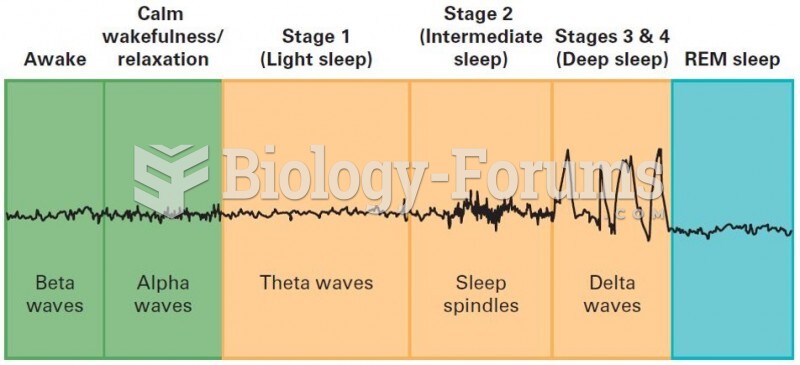|
|
|
Bacteria have flourished on the earth for over three billion years. They were the first life forms on the planet.
Human stomach acid is strong enough to dissolve small pieces of metal such as razor blades or staples.
Asthma-like symptoms were first recorded about 3,500 years ago in Egypt. The first manuscript specifically written about asthma was in the year 1190, describing a condition characterized by sudden breathlessness. The treatments listed in this manuscript include chicken soup, herbs, and sexual abstinence.
The ratio of hydrogen atoms to oxygen in water (H2O) is 2:1.
The Centers for Disease Control and Prevention (CDC) was originally known as the Communicable Disease Center, which was formed to fight malaria. It was originally headquartered in Atlanta, Georgia, since the Southern states faced the worst threat from malaria.






